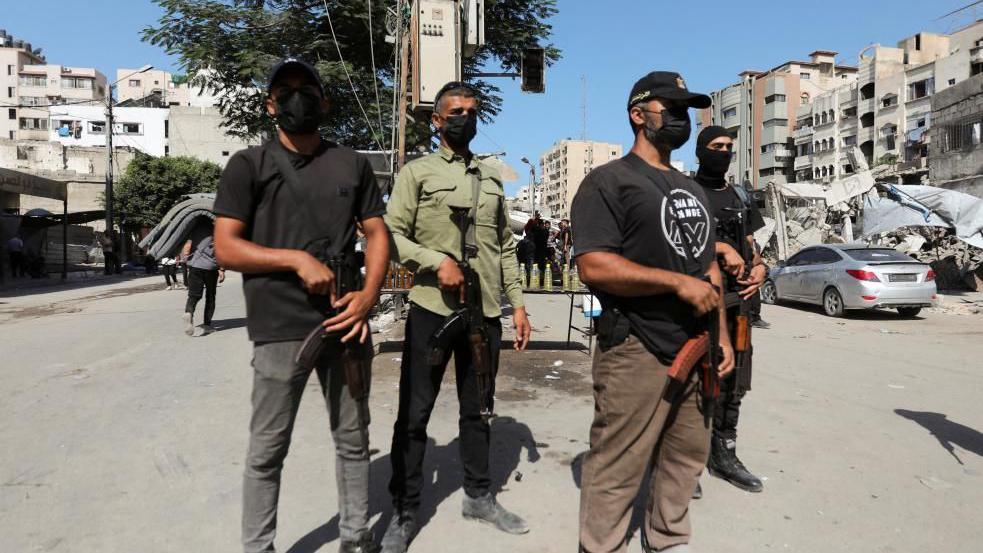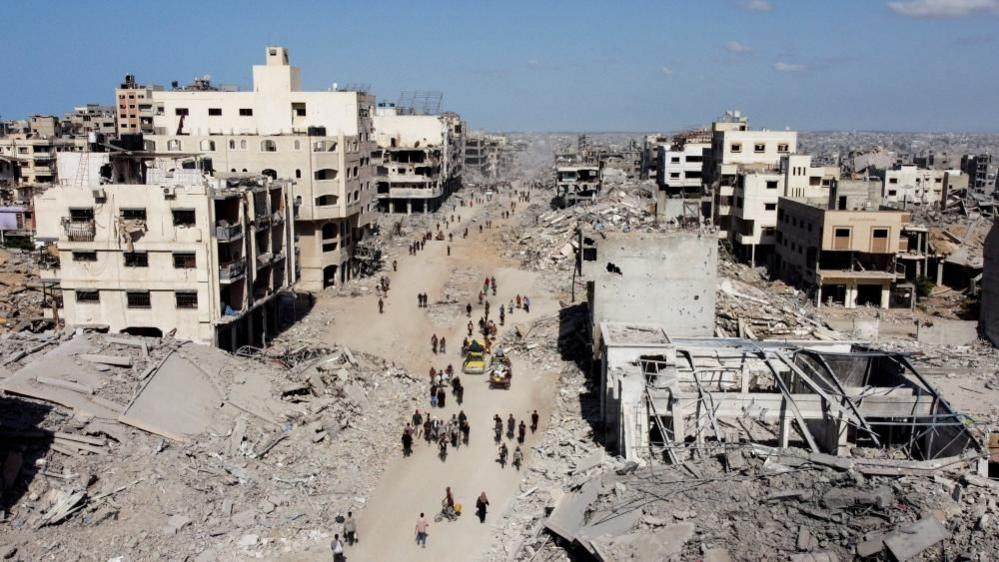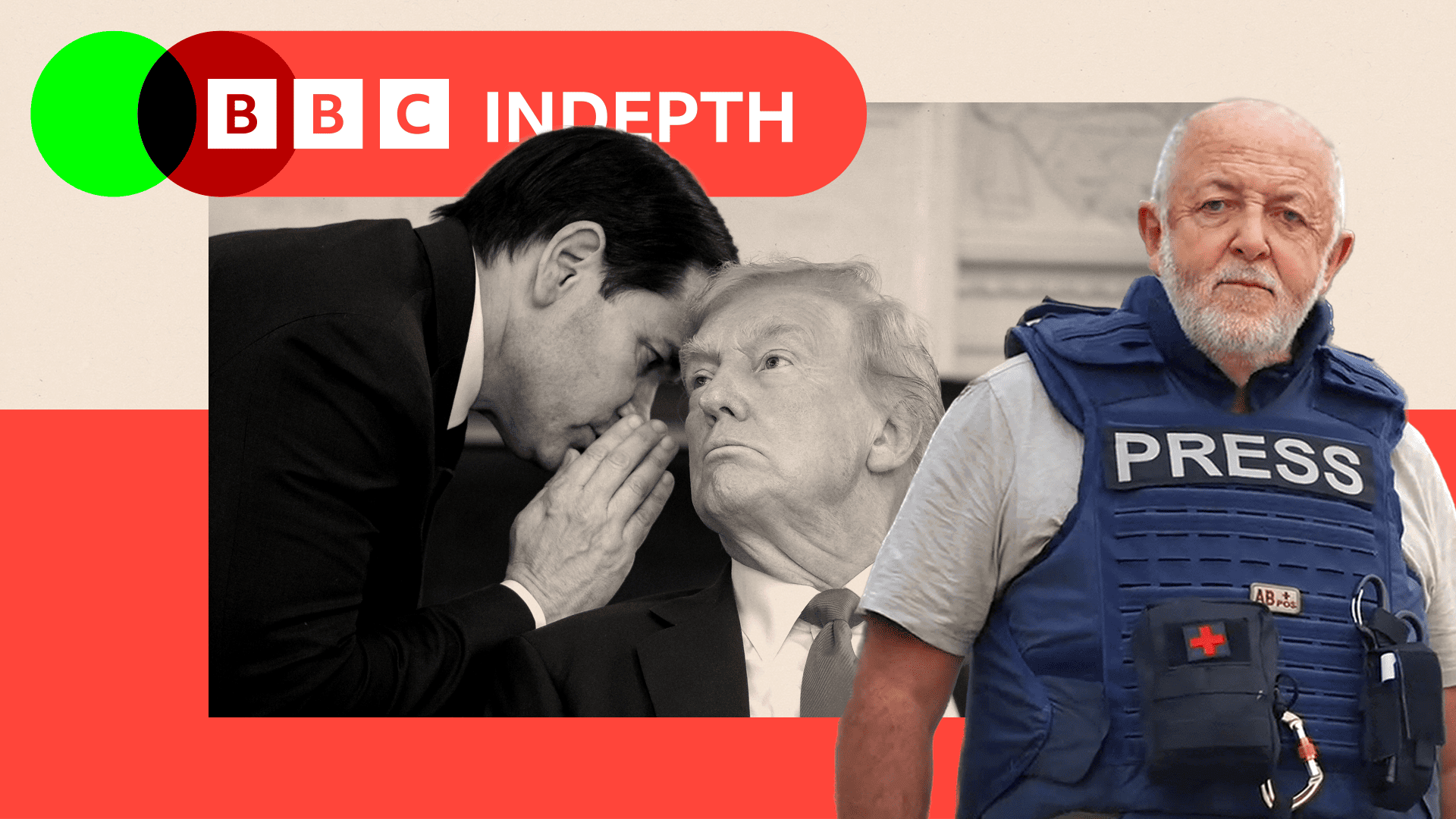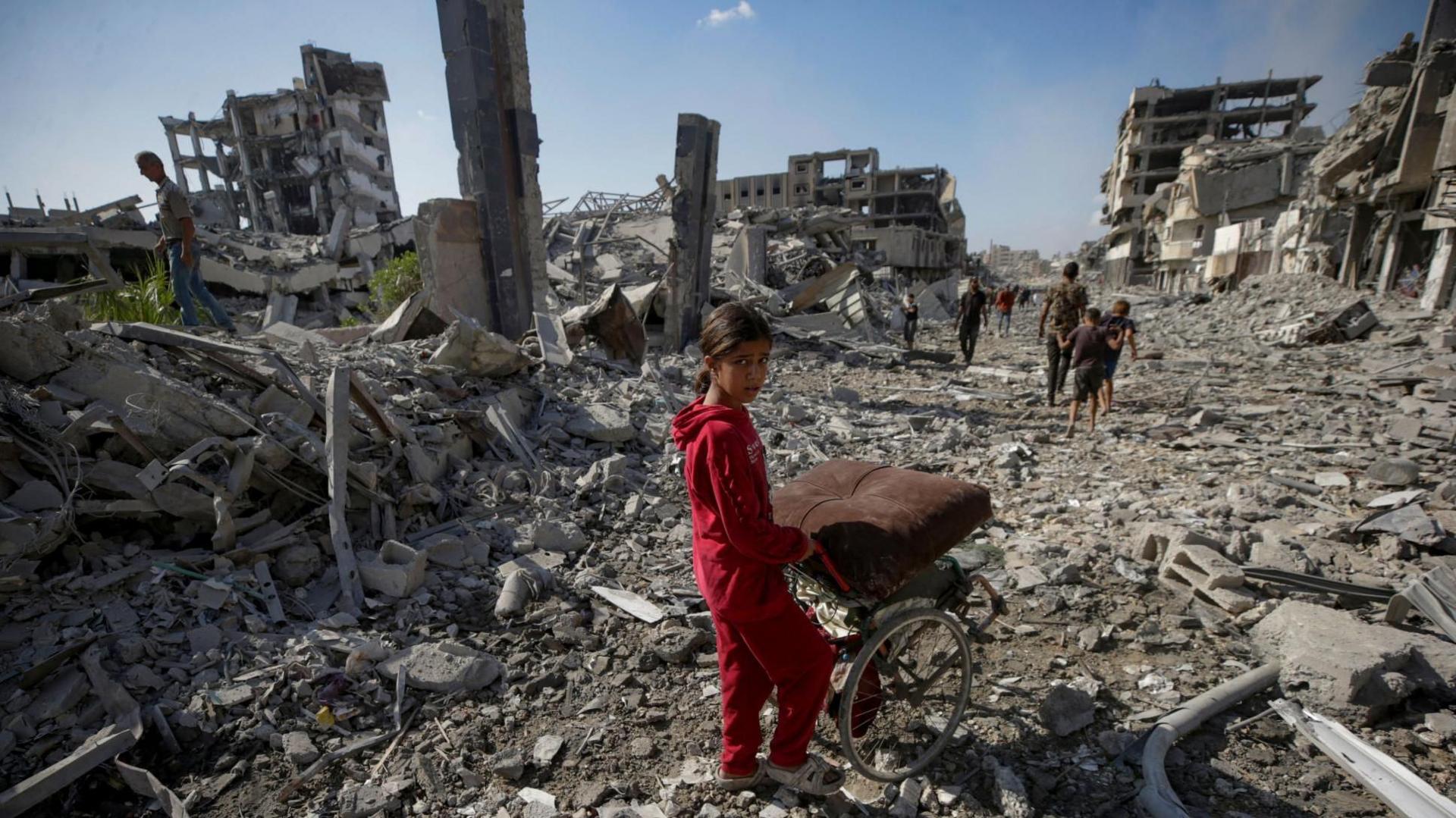Hamas mobilises fighters in Gaza as fears of internal violence mount

Hamas security forces on the streets of Gaza City on Saturday
- Published
Hamas has recalled about 7,000 members of its security forces to reassert control over areas of Gaza recently vacated by Israeli troops, according to local sources.
The Palestinian group also appointed five new governors all with military backgrounds, some of whom previously commanded brigades in its armed wing.
The mobilisation order was reportedly issued via phone calls and text messages which said the aim was to "cleanse Gaza of outlaws and collaborators with Israel" and told fighters to report within 24 hours.
Reports from Gaza suggest armed Hamas units have already deployed across several districts, some wearing civilian clothes and others in the blue uniforms of the Gaza police. The Hamas media office denied it was deploying "fighters in the streets".
Tensions rose sharply and quickly after two members of Hamas's elite forces were shot dead by gunmen from the powerful Dughmush clan in Gaza City's Sabra neighbourhood. One of them was the son of a senior commander in Hamas's armed wing, Imad Aqel, who now heads the group's military intelligence.
Their bodies were left in the street, triggering anger and raising the prospect of a major armed response by Hamas.
Hamas members later surrounded a large area where more than 300 Dughmush gunmen were believed to be holed up, armed with machine guns and improvised explosives.
This morning Hamas killed one Dughmush clan member, and reportedly kidnapped another 30.
Some of the clan's weapons were looted from Hamas depots during the war, while others had been in the clan's possession for years.
The Hamas mobilisation had been widely anticipated amid growing uncertainty about who will govern Gaza once the war ends.
This is a key issue that could complicate the start of the second phase of US President Donald Trump's peace plan, which calls for Hamas to disarm.
A Hamas official abroad declined to comment directly on reports of the security deployment, but told the BBC: "We cannot leave Gaza at the mercy of thieves and militias backed by the Israeli occupation. Our weapons are legitimate... to resist occupation, and they will remain as long as the occupation continues."
A retired security officer who served for years with the Palestinian Authority in Gaza said he feared the territory was sliding towards another round of internal bloodshed.
"Hamas hasn't changed. It still believes that weapons and violence are the only means to keep its movement alive," he told the BBC.
"Gaza is flooded with arms. Looters have stolen thousands of weapons and rounds of ammunition from Hamas stores during the war, and some groups have even received supplies from Israel.
"This is a perfect recipe for civil war: weapons, frustration, chaos, and a movement desperate to reassert control over a shattered and exhausted population."
Khalil Abu Shammala, a human rights expert who lives in Gaza, said it remained to be seen whether Hamas would accept handing over control on the ground or seek to obstruct the plan's implementation.
"There is undoubtedly widespread fear among many Gazans of potential internal fighting, given the many conditions that could fuel it," he said.
He said Hamas had been forced to accept the peace plan by the severe pressure it was under.
"I believe its continued attempts to maintain influence by any means, including involvement in security affairs, could ultimately jeopardise the agreement and plunge Gaza's residents into even greater suffering," he said.
These developments since the ceasefire earlier this week have sparked deep concern among Gazans already worn down by two years of a devastating conflict.
- Published14 October


